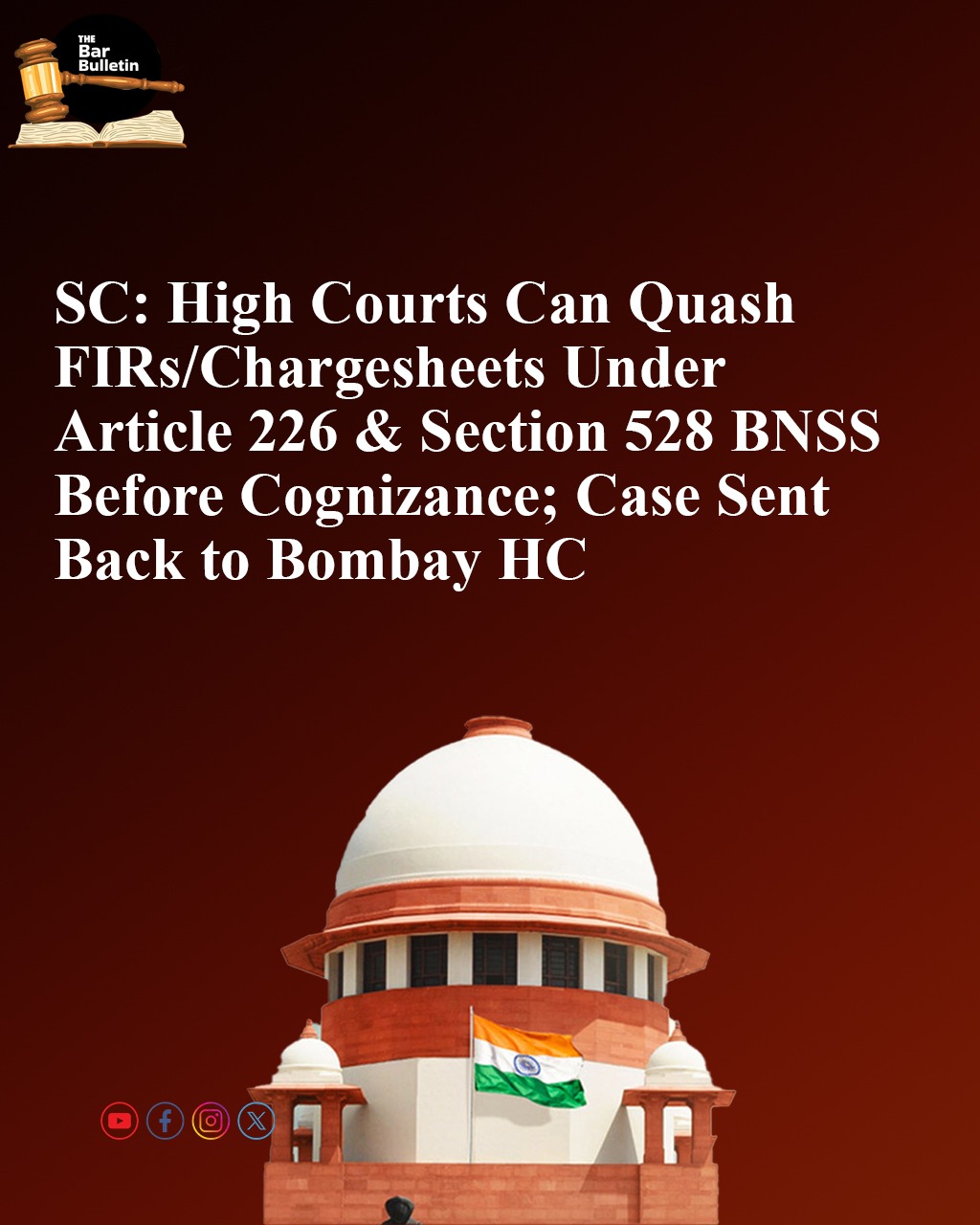The Supreme Court set aside the Bombay High Court’s dismissal order and remanded the writ petition for fresh consideration.
The writ petition sought quashing of an FIR registered for offences under Sections 420, 406, 409, read with Section 34 of the Indian Penal Code (IPC), following the filing of a charge-sheet in the case. The petitioner had invoked jurisdiction of the Bombay High Court under Article 226 of the Constitution and Section 528 of the Bharatiya Nagarik Suraksha Sanhita (BNSS), 2023.
The Bombay High Court dismissed the criminal writ petition on 1 July 2025, holding that mere filing of a charge-sheet rendered the request to quash the FIR infructuous, relying on the Supreme Court’s earlier decision in Neeta Singh & Ors. vs State of Uttar Pradesh & Ors.[1].
During the pendency of the writ petition, police had completed their investigation and filed a charge-sheet prior to the High Court’s hearing. The High Court determined that post-charge-sheet, the petition for quashing the FIR was no longer maintainable. The Bombay High Court reserved the petitioner’s right to apply for discharge before the trial court but did not adjudicate the merits of her quashing claim.
Before the Supreme Court, the Petitioner’s counsel argued that the Division Bench had jurisdiction to hear petitions for quashing FIRs and charge-sheets under both Article 226 and Section 528, BNSS. He further contended that filing the charge-sheet does not automatically render a petition for quashing the FIR infructuous, particularly if cognizance by the trial court has not yet been taken, and relief under Section 528 BNSS could extend to quashing the FIR, charge-sheet, or cognizance order, where warranted.
The Supreme Court Bench comprising Justice Dipankar Datta and Justice Prashant Kumar Mishra held that Bombay High Court’s dismissal was based on a misreading and misapplication of Neeta Singh, failing to acknowledge differences in jurisdiction and procedural posture.
The Supreme Court clarified that so long as cognizance is not taken, quashing of FIR/charge-sheet is still within the High Court’s powers. Even after cognizance, Section 528 BNSS allows challenge to FIR, charge-sheet, and cognizance order, provided relevant pleadings and grounds exist.
Therefore, the Supreme Court held that the Bombay High Court possessed jurisdiction to adjudicate the quashing application and should have considered the merits, rather than automatically dismissing the petition for being infructuous.
In result, the Supreme Court set aside the Bombay High Court’s order, revived the writ petition, and ordered a remand for fresh adjudication according to law, specifying that the roster bench should now consider the petition’s merits under all invoked jurisdictions. Connected interim applications were rendered infructuous and closed.
Appearances:
For the Petitioner: Mr. Kisalaya Shukla, AOR; Mr. Satyam Pandey, Adv.; Mr. Sandeep Kumar Dwivedi, Adv.; Mr. Krishna Kant Shukla, Adv.; Mr. Awadhesh Kumar, Adv.
[1] SLP (Cri.) No. 13578/2024, decided on 15/10/2024



